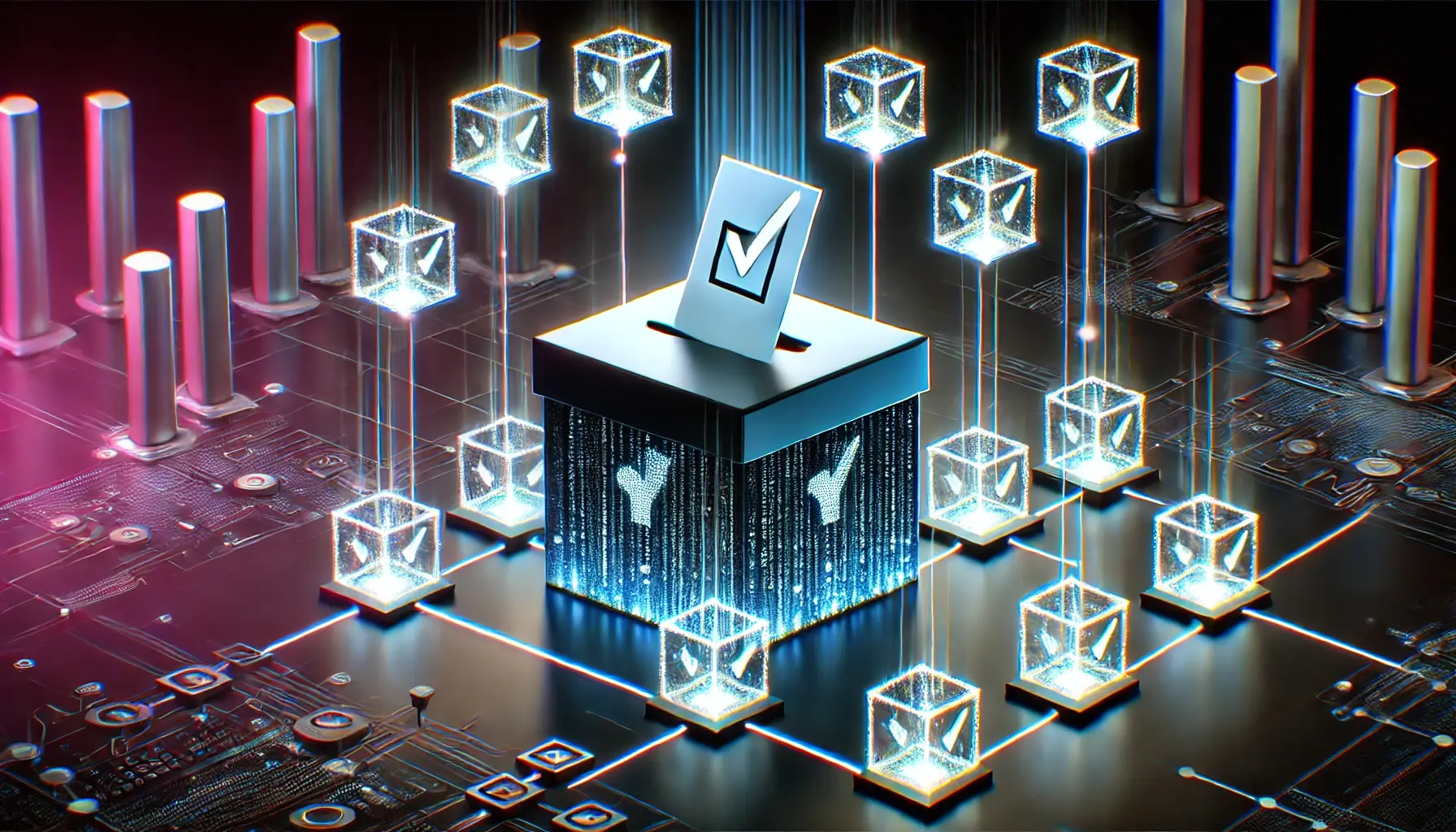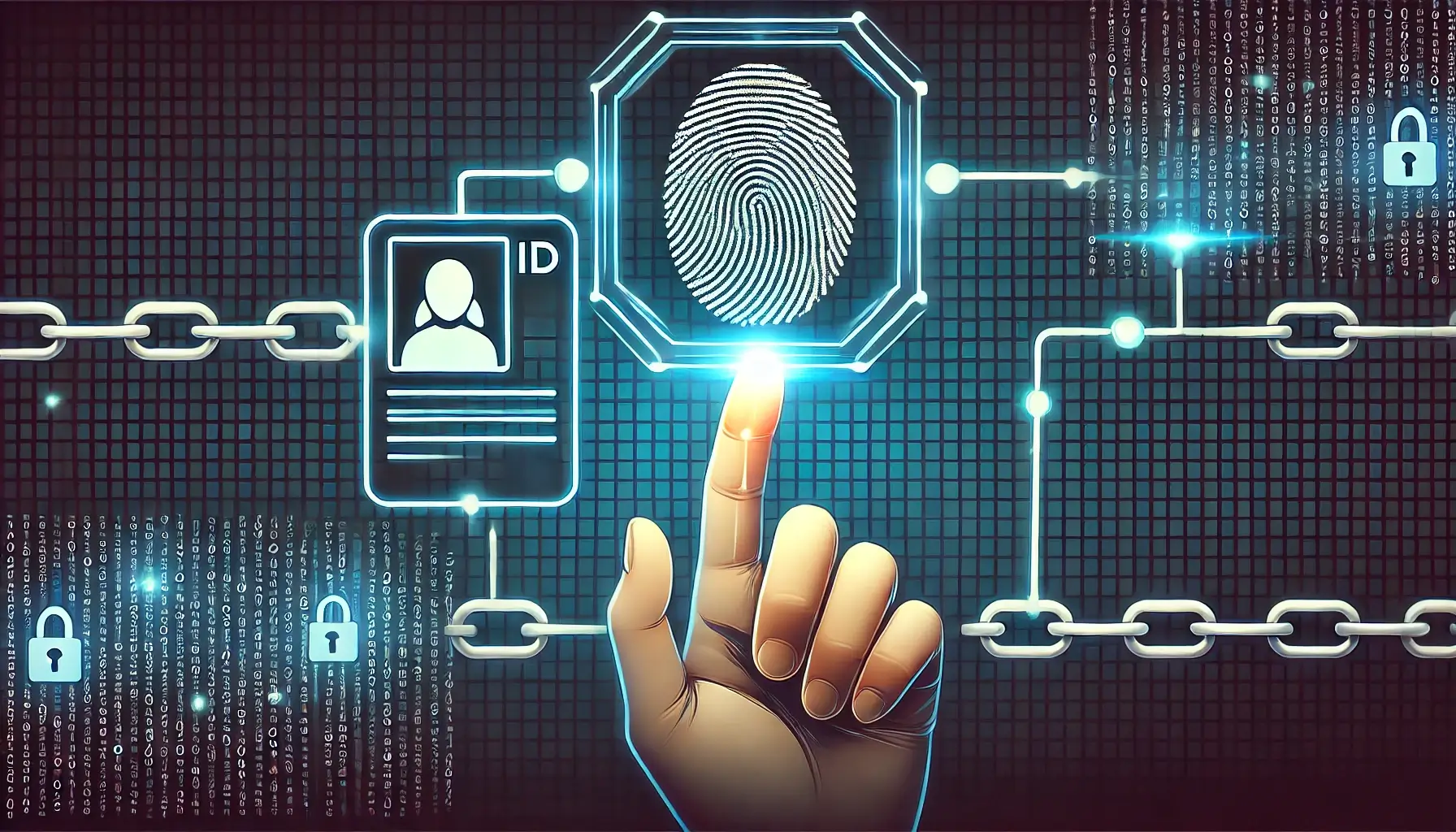1. The Need for Secure and Transparent Voting Systems
Elections are a cornerstone of any democratic society, but challenges such as voter fraud, tampering, and lack of transparency persist. These issues can undermine public trust in the electoral process, leading to political instability. As technology continues to evolve, blockchain has emerged as a potential solution. With its inherent security, transparency, and decentralization, blockchain technology offers a way to revolutionize voting systems and restore confidence in the democratic process.
Why It Matters
The integrity of voting systems is crucial for maintaining public trust in democratic institutions. Blockchain technology can address long-standing issues in electoral processes, making elections more secure, transparent, and accessible to all.
2. What Is Blockchain Technology?
Firstly, exploring how blockchain can revolutionize voting systems, it’s important to understand what blockchain technology is. Blockchain is a decentralized digital ledger that records transactions across a network of computers. It ensures data integrity and security. Each block in the chain contains a list of transactions. Once added, it cannot be altered without changing all subsequent blocks, making the system highly secure against tampering.
- Key Features:
- Decentralization: Unlike traditional databases controlled by a single entity, blockchain operates across a network of nodes. This distributes control and makes it more resistant to tampering.
- Transparency: All transactions recorded on a blockchain are visible to all participants, ensuring transparency and accountability.
- Security: Blockchain’s cryptographic structure makes it highly secure. Each block is linked to the previous one in a way that prevents unauthorized alterations.
3. How Blockchain Can Transform Voting Systems
Blockchain’s unique features make it an ideal candidate for revolutionizing voting systems. By leveraging blockchain technology, elections can become more secure, transparent, and accessible. These benefits address many of the issues that plague traditional voting methods.
3.1 Enhanced Security: Preventing Voter Fraud and Tampering
One of the most significant benefits of blockchain in voting systems is enhanced security. Blockchain’s cryptographic nature makes it nearly impossible to alter or tamper with votes once they are recorded on the blockchain. This reduces the risk of voter fraud, such as double voting, vote tampering, or unauthorized access to voting records.
- Example: In a blockchain-based voting system, the network records each vote as a transaction with a unique cryptographic signature. This ensures that votes cannot be altered or deleted once cast. It provides a secure and immutable record of the election.
- Why It Matters: Enhanced security ensures that every vote is counted accurately. This accuracy reflects the true will of the people, thereby strengthening the integrity of the electoral process.
3.2 Transparency and Trust: Ensuring Election Integrity
Transparency is a critical component of any democratic election. Blockchain’s decentralized and transparent nature allows all participants to view and verify the entire voting process. This transparency can help build trust in the electoral system. Voters can independently verify that their votes were counted correctly.
- Example: In a blockchain voting system, voters could receive a unique identifier. This allows them to verify their vote was recorded and counted without revealing their identity. As a result, this ensures both transparency and voter anonymity.
- Why It Matters: Transparency in voting processes can help reduce suspicion and claims of election rigging. This makes the outcome more widely accepted by the public.
3.3 Accessibility: Making Voting More Inclusive
Blockchain technology can also enhance the accessibility of voting systems. This is particularly true for individuals who face barriers to traditional voting methods. Blockchain-based voting can be conducted online, allowing voters to participate from anywhere in the world. This makes it easier for people with disabilities, those living in remote areas, or citizens abroad to cast their ballots.
- Example: Estonia has already implemented a form of blockchain-based e-voting. This system allows citizens to vote securely from their homes using digital IDs. This system has increased voter participation and made the voting process more convenient.
- Why It Matters: Increased accessibility can lead to higher voter turnout. A matter of fact, all eligible voters have the opportunity to participate in the democratic process, regardless of their location or circumstances.

4. Challenges and Considerations
While blockchain offers many benefits for voting systems, it is not without its challenges. Implementing blockchain voting on a large scale requires addressing several technical, legal, and social considerations.
4.1 Technical Challenges
- Scalability: Current blockchain networks can face issues with scalability, particularly when processing a large number of transactions simultaneously. For national elections with millions of voters, blockchain systems must handle high volumes without delays.
- Security Risks: While blockchain itself is secure, the endpoints—such as the devices used to cast votes—could be vulnerable to hacking or other forms of cyberattacks. Ensuring the security of these endpoints is critical to the overall integrity of the voting system.
4.2 Legal and Regulatory Considerations
- Legal Framework: Implementing blockchain-based voting would require updates to existing legal frameworks to recognize and regulate digital voting. This includes ensuring that blockchain voting meets the legal standards for election integrity and data protection.
- Voter Anonymity: Balancing transparency with privacy is a key challenge that needs careful consideration in the design of blockchain voting systems.
4.3 Social Acceptance and Trust
- Public Trust: For blockchain voting to be successful, it must be trusted by the public. Educating voters about how blockchain works and why it is secure is essential for gaining their trust and encouraging widespread adoption.
- Digital Divide: Not all voters have access to the internet or are familiar with digital technologies. Addressing the digital divide is crucial to ensure that blockchain voting systems are inclusive and do not disenfranchise certain groups.
5. The Future of Blockchain Voting: A New Era for Democracy?
Despite the challenges, the potential benefits of blockchain technology in voting systems are significant. As the technology continues to mature, it could revolutionize the way elections are conducted, leading to more secure, transparent, and accessible voting processes. The future of democracy may very well be digital, with blockchain at the forefront of this transformation.
Embracing Blockchain for Secure and Transparent Elections
Blockchain technology offers a promising solution to many of the challenges facing traditional voting systems. By enhancing security, ensuring transparency, and increasing accessibility, blockchain has the potential to revolutionize how we conduct elections. Fortunately, there are challenges to overcome, the future of voting could be transformed by blockchain, paving the way for more secure and trustworthy democratic processes.
For more insights and detailed guides on blockchain innovations and their applications, visit our Cryptocurrency Comparisons Guides.
Stay Updated
For the latest updates on blockchain technology and its impact on voting systems, follow us on:
Stay informed with the latest strategies and developments in the world of blockchain at FreeCoins24.io.
Special Offer
Ready to explore the future of secure and transparent voting? Sign up on Bybit today and take advantage of up to $30,000 in deposit bonuses. Discover a secure and innovative way to engage with blockchain technology.

















